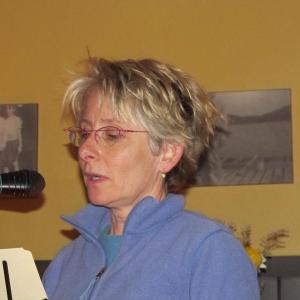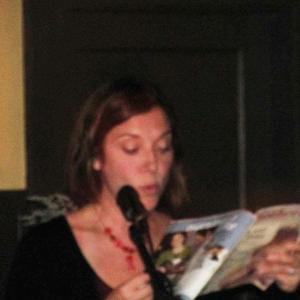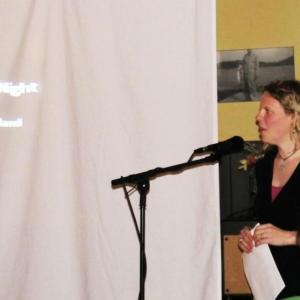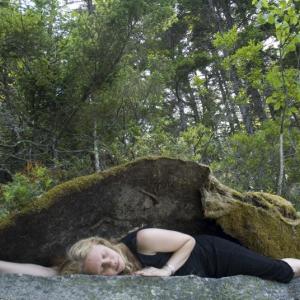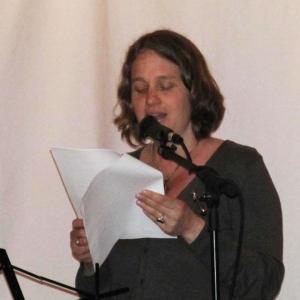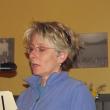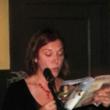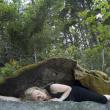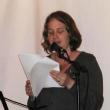Mother's Day stories the way Hallmark never intended
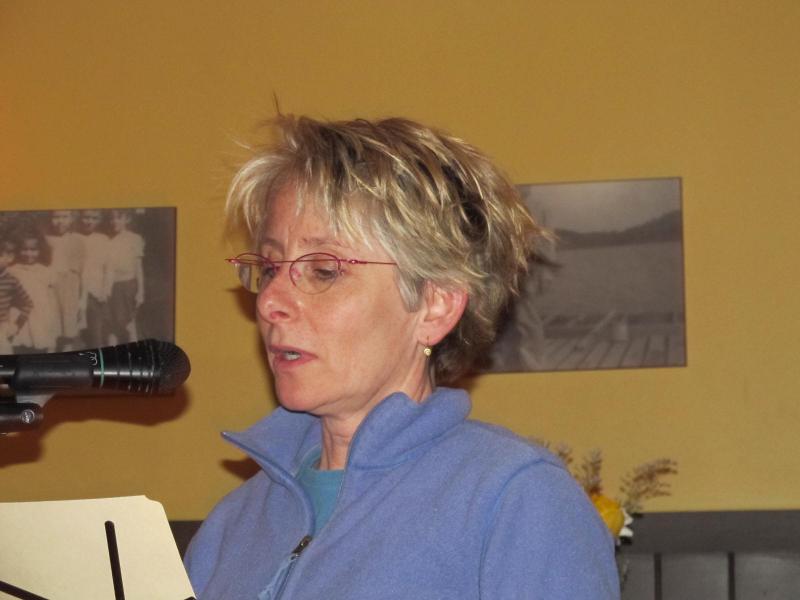 Cathy Kidman reads from her essay. Photo by Kay Stephens
Cathy Kidman reads from her essay. Photo by Kay Stephens
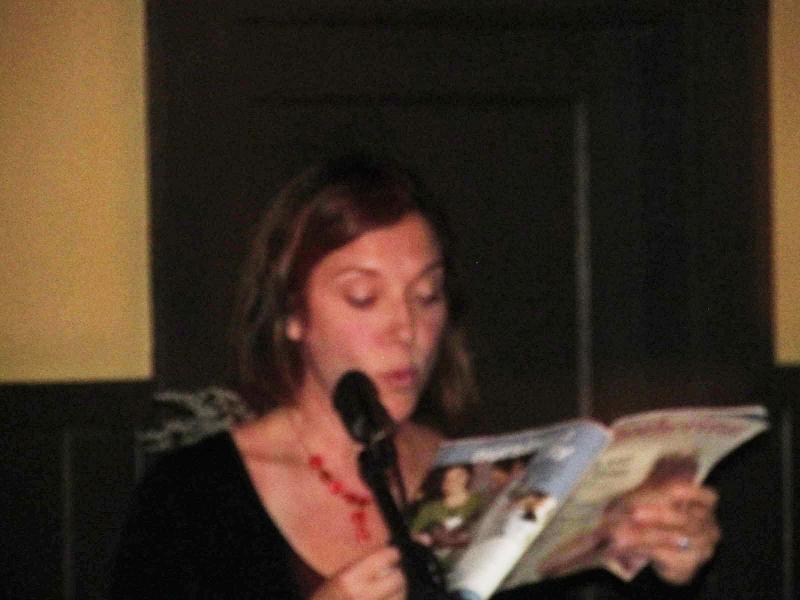 Elisabeth Wilkins was the first storyteller of the evening. (Photo by Kay Stephens)
Elisabeth Wilkins was the first storyteller of the evening. (Photo by Kay Stephens)
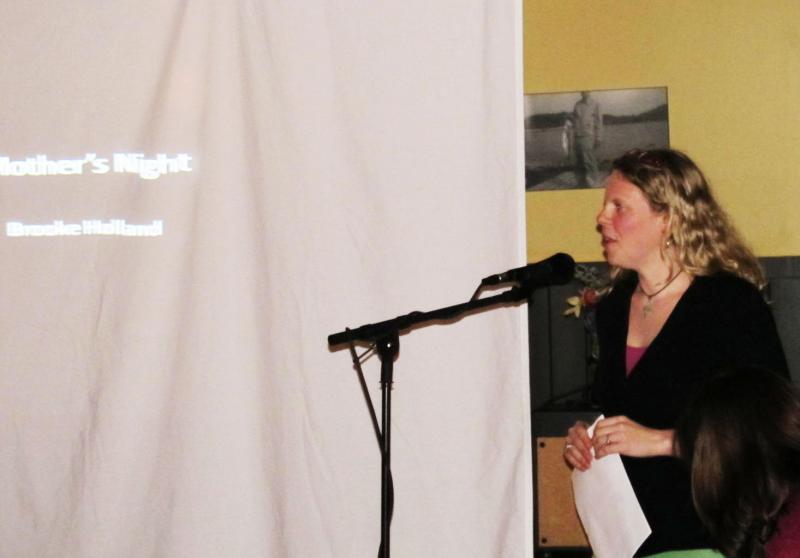 Brooke Holland starts her photo essay. (Photo by Kay Stephens)
Brooke Holland starts her photo essay. (Photo by Kay Stephens)
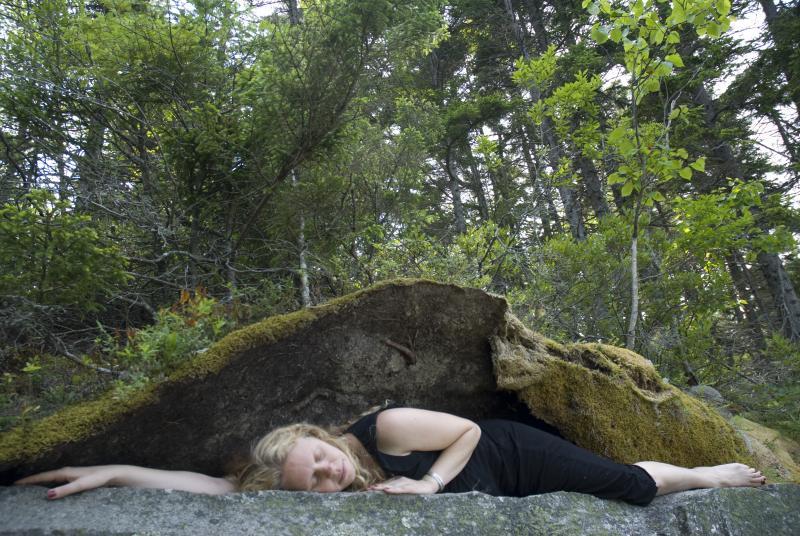 Brooke Holland's photo of being cradled. (Courtesy Brooke Holland)
Brooke Holland's photo of being cradled. (Courtesy Brooke Holland)
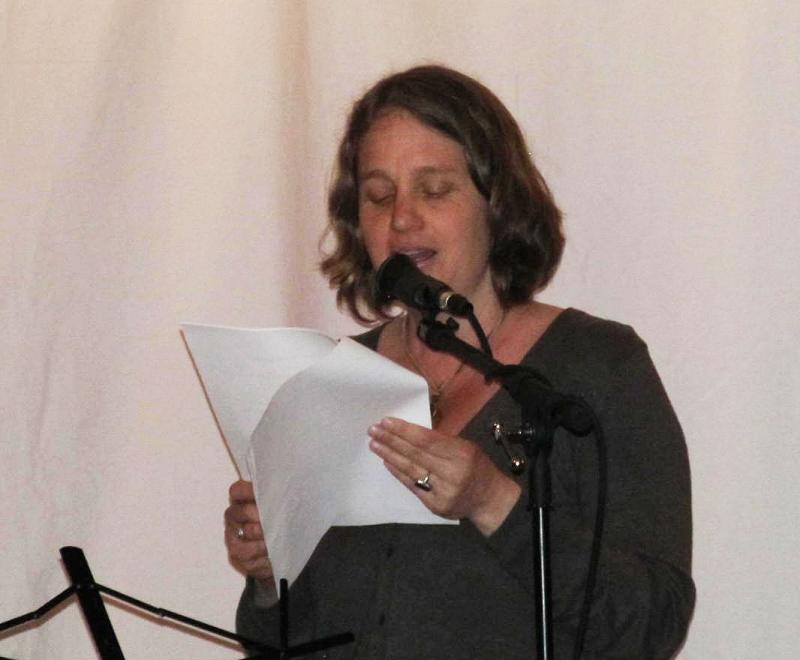 Brooke Williams reading from her essay "Microwave Chicken" (Photo by Kay Stephens)
Brooke Williams reading from her essay "Microwave Chicken" (Photo by Kay Stephens)
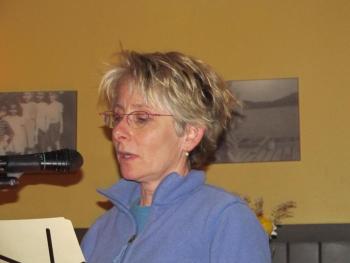 Cathy Kidman reads from her essay. Photo by Kay Stephens
Cathy Kidman reads from her essay. Photo by Kay Stephens
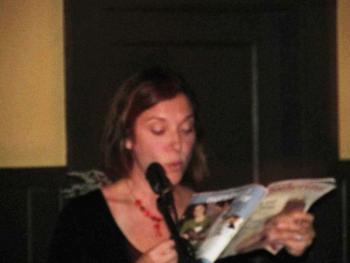 Elisabeth Wilkins was the first storyteller of the evening. (Photo by Kay Stephens)
Elisabeth Wilkins was the first storyteller of the evening. (Photo by Kay Stephens)
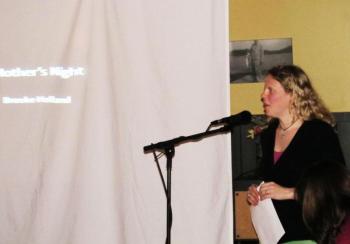 Brooke Holland starts her photo essay. (Photo by Kay Stephens)
Brooke Holland starts her photo essay. (Photo by Kay Stephens)
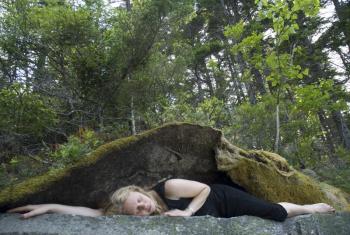 Brooke Holland's photo of being cradled. (Courtesy Brooke Holland)
Brooke Holland's photo of being cradled. (Courtesy Brooke Holland)
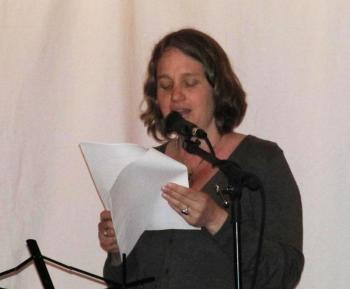 Brooke Williams reading from her essay "Microwave Chicken" (Photo by Kay Stephens)
Brooke Williams reading from her essay "Microwave Chicken" (Photo by Kay Stephens)
THOMASTON - As a non-mom, I'm not generally inclined to go to literary readings about Mother's Day. (It's a little like going to a car convention when you only ride a bike.) But somehow, I knew if I went to Billy's Tavern last night for their "Mother's Night Storytelling" event, I'd find a much richer understanding of what it means to be, or not be, a mother in these times. Because gay or straight, wealthy or poor, in a committed relationship or single, ambivalent or determined, every woman has asked herself this question at a point in her life: "what kind of mother would I be?"
Hallmark Cards, Inc., may think they have the slick and packaged answer for that one, but last night's storytellers gave a nuanced performance, using music, photo essays (like Pecha Kucha) and funny and poignant stories to illustrate how different we all are as women, but how we all ask ouselves that universal question.
Brooke Willams, a writer, and co-owner of Billy's Tavern, said, "We're all in a writer's group together down in Portland and I just felt like we needed to do an event that showed all these different perspectives. Essays are so hard to get published these days, but I thought these were stories other women needed to hear."
The storytellers were Elisabeth Wilkins, Kella River, Cathy Kidman, Brooke Holland and Brooke Willams.
Wilkins, the first reader said, "My piece was about how my Italian mother-in-law didn't understand why I was breastfeeding my child because to her, it carried a cultural association of poverty. But I think what she was really worried about is that I would raise my child so differently than she raised hers and these differences would prevent her with having a connection with her grandchild." To see Wilkins's story online, click here.
Kella River, a music therapist and a professional singer/songwriter sang a couple of songs, and one in particular, titled "Mother" was refreshingly honest. With lyrics, like "Mother you kill me," the song was about not fulfilling a mother's expectations while simultaneously chafing under her control. What was so interesting about this song is that it dared go to the place that Hallmark will never dare to go, layering the omnipresent image of June Cleaver with what a real mother says behind closed doors. (See our accompanying video of her performance.)
"I've played that song only a few times," said River, "and I'm pretty careful with it. The first few times I played it people seemed kind of disturbed, and I thought, 'well, that's my truth.' On the one hand, you have to accept that we're all imperfect. On the other, whatever you pass on to your kids can be lifelong."
The hue and cry that erupts every time a woman chooses to portray a less-than-positive view of motherhood will invariably follow, perhaps even in this article. I see it all the time. One person chooses to speak her truth and dozens protest, as if she is somehow speaking for all womankind. She's not. It's her truth. She's allowed to speak it.
Willam's piece titled Microwave Chicken got the most laughs and head nods from the audience.
"I've been writing that piece for so long and I've been trying to figure out what that piece was about," said Williams. The premise is that Williams's mother gives her a microwave oven to make life simpler, but it's not a tool that Williams wants or find necessarily simplifying in the 2000s as it did for her mother in the 1970s.
"It's essentially my relationship with my mother," she said. "But it's about rebelling about how your mother does things, and about feminism. I see a lot of women my age and younger who are approaching motherhood a lot differently than their own mothers."
Shonna Milliken Humphrey, another author, was slated to do a piece last night about her ambivalence about not having kids, but she was unable to come to the show. "I was really hoping to put that piece out there, because so many people are not having kids," said Williams.
In yet, another twist of perspective, Kidman's essay was about not being a mom, not because of choice, but because of ovarian cancer. With grit and humor, she wove through her story about how she and her partner had thought about having kids, until life changed her plans.
"I felt like I'd just got spayed," she said to the audience's laughter.
Brooke Holland, a photographer, took us through her own life story about how she lost her own mother at 18 and how she came to grips with this crushing loss, first through her photography and later, through her own sweet twin baby girls. Using a projector and a screen, she took us through this journey with each evocative photograph. One self-portrait stuck with me: an image of Brooke, lying cradled inside a mossy overhang, as if that could subsitute a mother's arms. (I think there was a sand storm that blew through the doors of Billy's Tavern at that moment, because my eyes wouldn't stop leaking.)
In the end, "what kind of mother did I have?" and "what kind of mother would I be" were deeply personal and different answers for everyone on stage and in the audience. Each story coaxed us to cross that bridge from our stereotypes, our long-held beliefs and our convictions and allowed us to see the truth from many facets. And that's why we tell stories.
Kay Stephens can be reached at news@penbaypilot.com
Event Date
Address
United States

